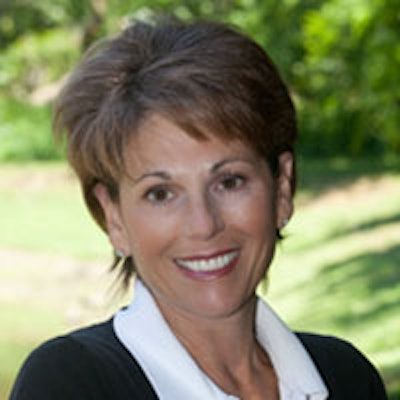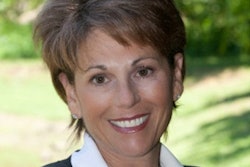
Let's get the facts straight first, the Georgia bill was not a midlevel providers (MLP) bill. The bill would have improved access to preventive dental care for the state's rural and underserved populations, including lower-income seniors and children in safety-net settings such as nonprofit health clinics, federally qualified health centers, and state-supported school-based health clinics.
Dental hygienists working under HB 684 would have provided services within their current scope of practice under the general supervision of a dentist. The decision of whether to take part in the bill would have been left to the sole discretion of the dentist and the safety-net facilities listed in the bill.
 Suzanne Newkirk, RDH, is a dental hygiene coach and mentor.
Suzanne Newkirk, RDH, is a dental hygiene coach and mentor.The bill was supported by the Georgia Dental Hygienists' Association (GDHA), which represents the 7,200 dental hygienists in the state, the Georgia Council on Aging, and the Georgia Health Care Association, which is the largest nursing home association in the state.
The bill died in the House of Representatives' Rules Committee after passing through the Health and Human Services Committee. Georgia Dental Association (GDA) Executive Director Frank Capaldo publicly announced that the GDA had no opposition to the language in the bill.
Unfortunately, Capaldo's statement was nothing more than a ruse for the GDA to continue to work behind the scenes to kill the bill. Dental association members called legislators in alarm after receiving an "Urgent Call to Action" sent out by the GDA.
Supervision standard
For more than 25 years, Georgia dental hygienists working under the auspices of the Department of Public Health, Department of Corrections, and county boards of health have not required a dentist present in the treatment facility while providing services to the public. This level of supervision is recognized as the supervision standard for dental hygienists working in public health settings and private practices across the U.S.
Additionally, Georgia residents receiving services delivered by dental hygienists in public health and correctional settings have not been required to receive an initial exam by the supervising dentist before treatment.
In late January, the U.S. Federal Trade Commission (FTC) provided an opinion on the bill that reiterated what sponsors and supporters already knew: The bill would increase access to care and promote more cost-effective care for Georgia's most vulnerable populations.
“This bill would have expanded services for these population groups by breaking down barriers to care.”
However, regardless of the facts, GDA claimed that the bill posed a public safety risk and would introduce two standards of care, yet it cited no evidence to support its assertions.
During testimony before the House Health and Human Services Committee, Capaldo alluded that the GDHA "had a different set of facts" when he was questioned about the lack of dentists in Georgia. However, GDA's 2012 study of Georgia's dental workforce ranked Georgia 49th in the nation for the number of dentists per capita and cited 16 counties as having no dentist at all.
A 2015 map provided by the Georgia Department of Community Health identified 118 of Georgia's 159 counties as a "dental health professional shortage area." There are only 19 public health dental hygienists in Georgia for 10 million residents, according to a GDA workforce study.
Nearly 1 in 5 Georgian's lives in poverty. One-third of the population is African-American, many of whom are economically disadvantaged, comprising 45% of the state's impoverished residents. Twelve percent of Georgians are age 65 years or older, and 25% of the population are children 18 years or younger.
Untreated dental decay is the leading chronic disease of childhood. Untreated tooth decay among low-income children in Georgia is 50% higher than tooth decay among Georgia children of a higher socioeconomic status. Sadly, 1 in every 4 children in Georgia lives in a low-income household, and only 50% of Georgia Medicaid-eligible children receive preventive dental services.
This bill would have expanded services for these population groups by breaking down barriers to care. The bill required no funding and would have fostered the potential to reduce the $47 million annual cost to Medicaid, Medicare, and other payors for dental emergencies seen in hospital emergency room departments around the state.
There are nearly 30% more dental hygienists in Georgia than dentists, many of whom have the skill, education, and desire to make a difference in the lives of underserved. Whereas, the Georgia legislators who voted to kill HB 684 lost sight of who put them in office in the first place.
2016 is an election year; let us hope that the 2017 legislative session begins with new state representatives, ones who would like to make a positive difference in the lives of Georgians.
Suzanne Newkirk, RDH, is a dental hygiene coach and mentor and a recognized key opinion leader in dental endoscopy. Her website is www.perioscopyprofessionals.com, and she can be reached at [email protected].
The comments and observations expressed herein do not necessarily reflect the opinions of DrBicuspid.com, nor should they be construed as an endorsement or admonishment of any particular idea, vendor, or organization.



















